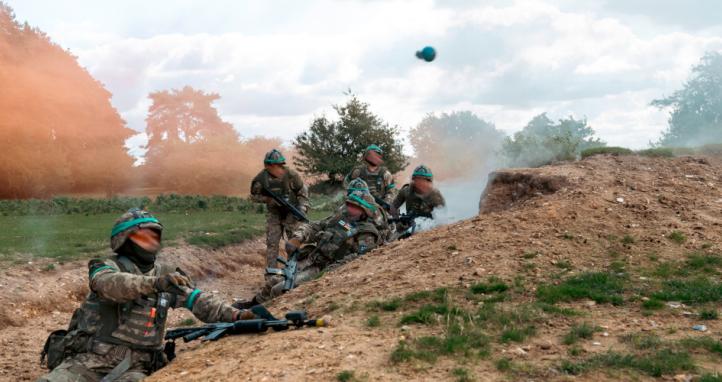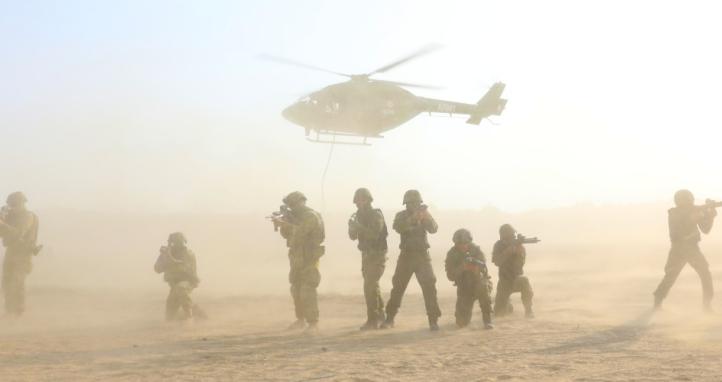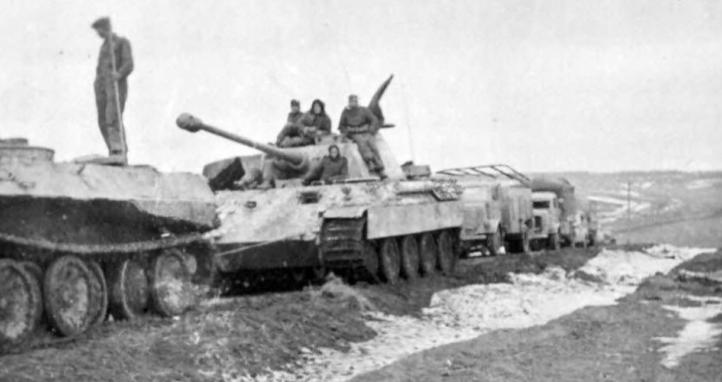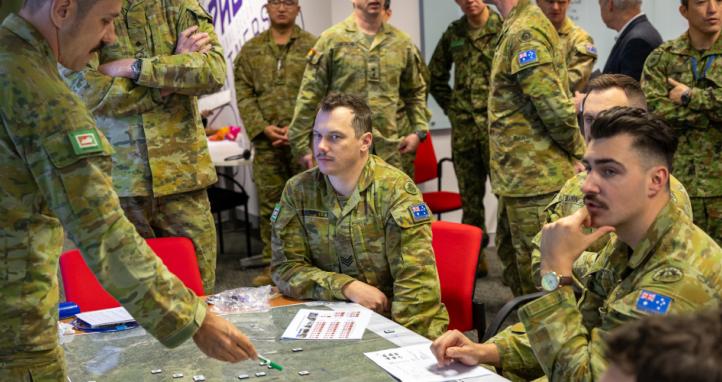At the Cove we are big on reflective practice, so if you found yourself reflecting after the minute silence on Remembrance Day that 'I don't know that much about the Great War', we have a starting point for you.
These books have been chosen by the Cove Team and staff within the DG TRADOC branch. The Australian War Memorial also has a bookshop with many more titles that may also pique your interest in the Great War.
First Day on the Somme by Martin Middlebrook
'After an immense but useless bombardment, at 7.30 am. On 1 July 1916 the British Army went over the top and attacked the German trenches. It was the first day of the battle of the Somme, and on that day the British suffered nearly 60,000 casualties, two for every yard of their front. With more than fifty times the daily losses at El Alamein and fifteen times the British casualties on D-day, 1 July 1916 was the blackest day in the history of the British Army. But, more than that, it was a watershed in the history of the First World War. The Army that attacked on that day was the volunteer Army that had answered Kitchener's call. It had gone into action confident of a decisive victory. But by sunset on the first day on the Somme, no one could any longer think of a war that might be won. After that it was a struggle that had simply to be endured.'
The First Day on the Somme by Martin Middlebrook is a very readable book does a good job of laying out the buildup to the battle of the Somme and then a gruelling re-telling of the first day of the battle. The author has taken actual accounts from solders from both sides to make it a compelling and complete history.

First Day on the Somme by Martin Middlebrook, 1971.
The Great War edited by Carolyn Holbrook and Keir Reeves
'The legacy of war is complex. From the late twentieth century as we moved closer to the centenary of the start of the First World War, Australia was swept by an ‘Anzac revival’ and a feverish sense of commemoration. In this book, leading historians reflect on the commemorative splurge, which involved large amounts of public spending, and also re-examine what happened in the immediate aftermath of the war itself.
At the end of 1918, Australia faced the enormous challenge of repatriating hundreds of thousands of soldiers and settling them back into society. Were returning soldiers as traumatised as we think? What did the war mean for Indigenous veterans and for relations between Catholics and Protestants? Did war unify or divide us? The country also faced major questions about its role in the world order that emerged after Versailles. How has the way we commemorate the war skewed our view of what really happened?'
The Great War: Aftermath and Commemoration, edited by Carolyn Holbrook and Keir Reeves, is a collection of engaging essays from a diverse group of leading historians that discusses the profound ways in which the Great War not only affected our political system and informed decades of national security policy but shaped our sense of who we are. This book points out the legacies of war that we live with today in ways we may not be aware of.

The Great War edited by Carolyn Holbrook and Keir Reeves, 2019.
Dorothea's War by Dorothea Crewdson and edited by Richard Crewdson
'In April 1915, Dorothea Crewdson, a newly trained Red Cross nurse, and her best friend Christie, received instructions to leave for Le Tr port in northern France. Filled with excitement at the prospect of her first paid job, Dorothea began writing a diary.
Dorothea went on to witness and record some of the worst tragedies of the First World War, though somehow always maintaining her optimism, curiosity and high spirits throughout.
The pages of her diaries sparkle with warmth and humour as she describes the day-to-day realities and frustrations of nursing near the frontline of the battlefields, or the pleasure of a beautiful sunset, or a trip 'joy-riding' in the French countryside on one of her precious days off. One day she might be gossiping about her fellow nurses, or confessing to writing her diary while on shift on the ward, or illustrating the scene of the tents collapsing around them on a windy night in one of her vivid sketches. In another entry she describes picking shells out of the beds on the ward after a terrifying air raid (winning a medal for her bravery in the process).
Over 100 years on, what shines out above all from the pages of these extraordinarily evocative diaries is a courageous, spirited, compassionate young woman, whose story is made all the more poignant by her tragically premature death at the end of the war, just before she was due to return home.'
Dorothea's war: A First World War Nurse tells her Story edited by Richard Crewdson is the personal diary of Dorothea Crewdson, a Voluntary Aid Detachment (VAD) nurse in the First World War based in France from 1915 to 1919. The original diaries were kept by Dorothea’s brother, the editor’s father for some 70 years. On his father's death, Richard Crewdson found seven small notebooks in his desk detailing all of Dorothea’s experiences, both good and bad. All the drawings featured in the book are Dorothea’s own from her diaries. Despite all the traumas and harrowing experiences the book is also full of humour, dedication and allows the reader a unique opportunity to experience how life was for these women.

Dorothea's War by Dorothea Crewdson and edited by Richard Crewdson, 2013.









